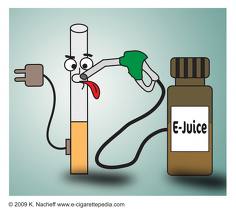Hi Everyone, I have in front of me the latest document produced by the National Centre for Smoking Cessation and Training (NCSCT) that has been produced in partnership with Public Health England.
I thought I would share it with you all 
The National Centre for Smoking Cessation and Training (NCSCT) was established to support the delivery of smoking cessation interventions provided by local stop smoking services, support the NHS and Local Authorities to deliver effective evidence-based tobacco control programmes, and deliver training and assessment programmes to stop smoking practitioners and other health care professionals.
This briefing brings together all of the latest evidence on the use, effectiveness and safety of electronic cigarettes and suggests what role stop smoking services might have in relation to electronic cigarettes; and how they should respond to enquiries about them from smokers.
This briefing has been written because many stop smoking services are struggling to decide what role
they have in relation to electronic cigarettes, and how they should respond to enquiries about them
from smokers. There is also debate about the future licencing of electronic cigarettes and whether they
offer an opportunity to make significant public health improvements or not.
Please find below the exective summary of the document, however if you would like to read the whole document, please ckick on the link for more details;
ncsct.co.uk/usr/pub/e-cigar...
Executive summary
- Electronic cigarettes are devices that deliver nicotine by heating and vapourising a solution that
typically contains nicotine, propylene glycol and/or glycerol, and flavourings
- Electronic cigarette use is increasing in smokers wanting to quit but particularly among smokers
who want to reduce the health risks of smoking or to save money
- Electronic cigarettes are not currently licensed for smoking cessation; they do have to comply
with consumer protection legislation
- The quality of electronic cigarettes is improving. With experience, users can achieve overall blood
nicotine levels similar to those achieved with smoking conventional cigarettes; although it takes
longer to reach these levels and they still receive less nicotine per puffing session
- Electronic cigarettes can reduce urges to smoke and can help smokers quit, although these data
are not as robust as those for licensed stop smoking medicines
- Data from one good quality randomised controlled trial show that electronic cigarettes were as
effective as nicotine patches in helping people stop smoking for six months, when used in
combination with minimal support from a trained practitioner
- Short-term exposure to electronic cigarettes appears to be associated with few serious risks.
Mouth and throat irritation are the most commonly reported symptoms and these appear to
subside over time. There are no high quality safety data regarding long-term electronic cigarette
use but there is no a-priori reason to expect that such use may pose risks anywhere near the risks
associated with smoking
- Low levels of toxicants and carcinogens have been detected in electronic cigarette liquid and vapour
although these are much lower than those found in conventional cigarette smoke and are not
considered to pose any passive inhalation risk.
I hope that it provides some of you with any answers you may have around understanding the use of the e-cig and the future of it within this whole stopping smoking business.
Any questions, please just ask and I'll do my best to come back to you 



